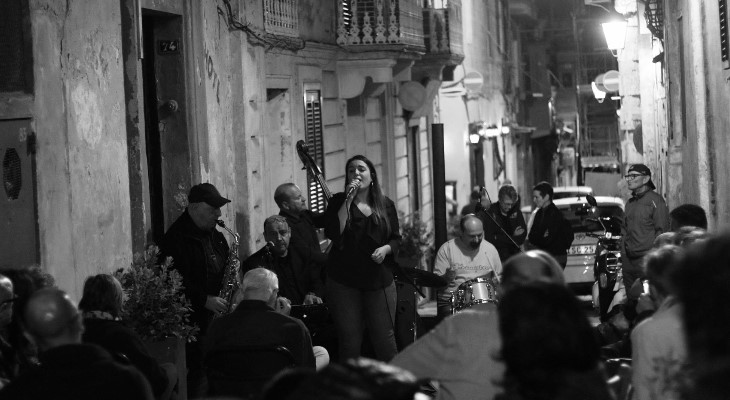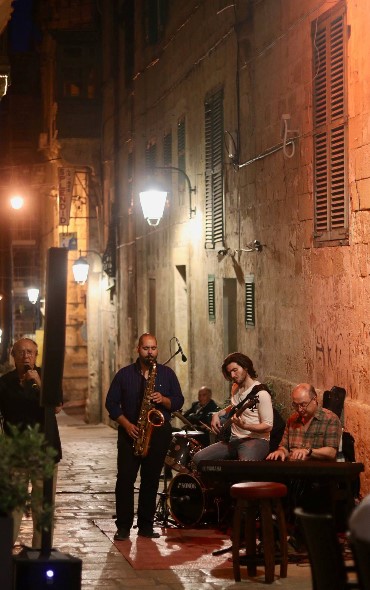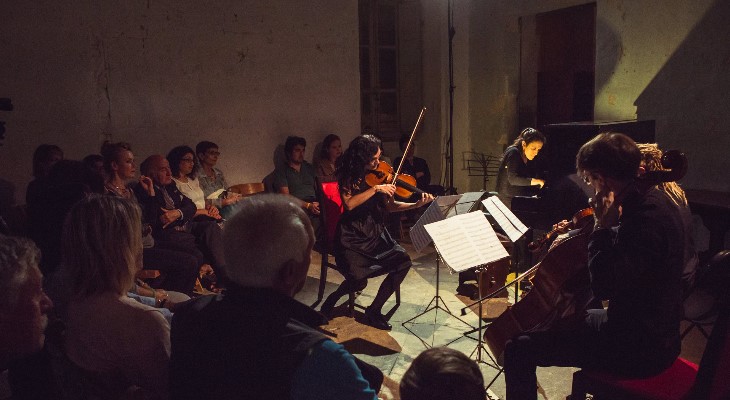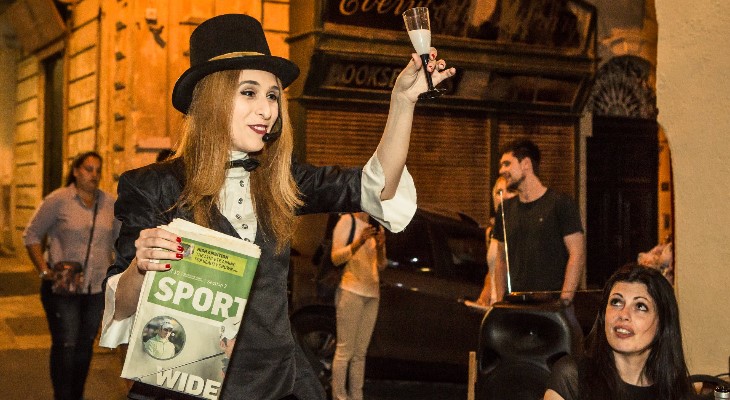Strait Street: How Valletta’s most iconic street is once again the beating heart of the capital
The infamous former red light district is enjoying a new lease of life, harking back to its roots as the entertainment hub of the city.
There was a time when Strait Street, or Strada Stretta as the locals refer to it, was known around the world thanks to its reputation for providing relief and entertainment, to put it politely, to countless foreign sailors and soldiers stationed on these shores.
Countless too are the stories that emanate from Valletta’s narrowest street, if only those walls could talk! But Strait Street was not just Malta’s most famous red light district. It was a veritable entertainment hub, a bohemian centre where artistic freedom reigned supreme, and where some of the island’s finest musicians of the classical age honed their talent and found fame.
Not just any old street
It was home not just to barmaids and artists, but also to lawyers, priests, Malta’s first saint, and several families, including that of Dr Giuseppe Schembri Bonaci, who today is Strada Stretta’s artistic director. For yes, this eclectic street is not just any old street. It has its own unique identity, which is now being developed into a brand synonymous with quality, alternative artistic entertainment under the guidance of its former resident.
The regeneration of Strada Stretta was part of the regeneration of the rest of the capital, but for Giuseppe, this has been something of a personal journey too.
“I am from this area, I was brought up in the Due Balli region of Strada Stretta which is the lower part of the street towards the sea, so for me the regeneration of the street has a personal and emotional aspect,” admits Giuseppe, who is also a lecturer in art and art history at the University of Malta.
“I remember Strada Stretta how it used to be, in the late 1950s and 1960s, as the hub of Maltese culture full of cabarets, theatre and jazz,” he reminisces. “I also remember the competition between live bands from different bars like the ‘Las Vegas’, the ‘Cotton Club,’ and the ‘Adam and Eve’. For us Valletta residents, it was a very entertaining area.”

The Strada Stretta Concept
An unconventional home
It was, nevertheless, an unconventional area to be brought up in, although for Giuseppe, it was all rather normal. “Growing up, it was impossible not to go there, but I do remember a distinct distance between the area we lived in at the Due Balli end and going up to my uncles and aunties’ further up the street (and hence closer to the entertainment part), but we got used to it. There was a very neat separation between the daily business and residents living there,” reminisces Giuseppe.
“There was an unwritten competition between Strada Stretta and Premier Cafe, which used to be situated where Cafe Cordina is today,” he adds.
After the British Forces left Malta in the late 1970s, Strada Stretta, along with the rest of Valletta, started dying out, and by the early 1980s, the capital was “quite a dead city”. Hard to believe, seeing it now basking in the limelight as the reigning European Capital of Culture!
Giuseppe recognised Strada Stretta’s artistic potential quite prematurely, when he launched his own theatre company with the name Teatru Strada Stretta back in the early 1990s. He admitted at the time people were surprised with the link to the infamous street. “I was trying my best to show a different kind of theatre production, uniting high classical art with open popular art and spaces,” explains Giuseppe.

The Strada Stretta Concept
The Strada Stretta concept
It was the “modest” (by his own admission) success of Teatru Strada Stretta and his passion for art as well his personal interest in the street that led to Giuseppe being asked by Government to create a strategy and an objective for the regeneration of Strait Street. And so the Strada Stretta Concept was born.
“We started a very ambitious programme of alternative theatre and events alongside traditional events,” says Giuseppe. Among the many jazz evenings, cabaret, poetry and music events, Strada Stretta Concept also stages an annual classical opera on 24th November, produced and directed in an inimitable unique and creative format as far removed from the traditional operatic sense as you can imagine.
This “bizarre” approach is intentional, and sits perfectly with the bohemian character and history of the street, where everything and anything was permissible and people were free to explore their artistic talents.
“Everything has to be strange otherwise it is not interesting,” states Giuseppe, and that is pretty much the driving philosophy of the artistic productions of Strada Stretta Concept.
“There was more to Strada Stretta than the red light district. It is very important to underline that although what I am doing seems to be far removed from what it used to be, it is all based on how I remember Strada Stretta - as a hub full of excellent artistic action and a creative world. We have put it on a different level now, a higher level,” says Giuseppe who went on to explain that red light districts developed in the cities as alternative zones.
“Frontier urban zones turn into bohemian red light districts and are a source of cultural power, of artistic strength. Every artist has to have some kind of link with these zones as they provide an alternative to a normal, traditional way of living. Strada Stretta was quite free and very tolerant. People living there were used to a mosaic of different values,” he adds.

The Strada Stretta Concept
A new golden area
Strait Street is now living a new golden era. New bars and restaurants are opening where old establishments used to be, new boutique hotels are sprouting and property prices are naturally sky-rocketing. The street is once again an entertainment hub and a very trendy one at that - the place to be seen. But Giuseppe is not so keen on this “trendy-isation” of “his” street.
“Big money is not always coupled with great taste or great art. Kitsch is coming in with some architectural changes which are ridiculous,” he complains. “But it is useless to fight it. I am trying to fight it by retaining the totalitarian quality of my productions. If I am doing high quality events, hopefully it might push this ‘trendy-isation’ into at least trying to co-opt such an approach.”
“I don’t want Strada Stretta to retain a museum façade,” Giuseppe insists. “I want Strada Stretta to become a cultural, artistic hub offering alternative art.”

The Strada Stretta Concept
Giuseppe is now looking ahead beyond Valletta 2018 and is aiming at creating events that have a ripple effect on the rest of the island. “We need to create a structure in which such alternative events could have more permanent continuation and not just retain them as a one-off modest success. We need a structural approach to achieve this, bridging the university, MCAST and other entities. I am dreaming of creating a cobweb between different local councils in Malta and Gozo so that what is happening in Strada Stretta can be ‘exported’ elsewhere.”
Ultimately, Giuseppe’s goal is to see Strada Stretta become a brand name, a byword for a particular type of “entertainment” and to provide new structural developments to continue creating alternatives, “whatever those alternatives are.”